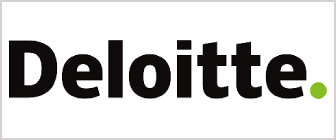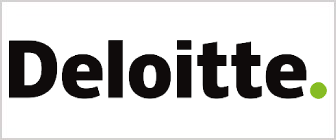What is the most significant change to your region/jurisdiction's tax legislation in the past 12 months?
I have worked in the United Kingdom (a mature tax regime) and mostly in the United Arab Emirates (a new tax regime). What has been fascinating to experience is that, notwithstanding the gap in time between the introduction of the Value Added Tax and Excise taxes in the UK and the UAE, there are common issues facing both tax regimes. These include the digitalisation of taxes; the continuing challenge to maintain a tax framework which is business friendly, transparent and simple; encouraging compliance and dealing with the threats of avoidance or fraud; significant macro-economic issues such as Brexit (future trade and customs agreements/models); Organisation for Economic Cooperation and Development/Base Erosion and Profit Shifting participation; and, (global) data disclosure rules and protection, e.g. General Data Protection Regulation (GDRP). The most significant stand-out change has to be increased regulation in respect of an exchange of tax information and tax data disclosure/security.
What has been the most significant impact of that change?
The most significant impact of this change is: (i) from a taxpayer viewpoint businesses need to ensure 'data protection' compliance and have an integrated approach to ensure that their tax and overall corporate governance and systems strategies are robust to avoid fines and reputational damage; and, (ii) from the tax authority perspective developing a strategic approach to better target tax information and data compliance whilst ensuring consistency with international best practices. Many companies in the Gulf Cooperation Council (GCC) region do business in Europe and vice-versa and compliance with, for example, GDRP is not necessarily ringfenced by geographical borders.
How do you anticipate that change impacting your work and the market moving forwards?
I think tax advisors will need to be much more globally aware of tax regulation/laws; international best practices and how this links in to better tax compliance; robust risk and independent protocols; engagement with tax authorities; and, in managing tax dispute resolution. In other words, the change impacts end-to-end services provided to clients, which means moving forward in a far more integrated or holistic approach to providing tax advisory services.
How has this changed the way you offer tax advice?
In my view the provision of tax advice must adopt a more holistic approach, whereby tax technical advice must be joined up with commercial, reputational and wider global developments in tax, e.g. GDRP or OECD/BEPS rules. Going to market will mean a more joined-up approach in terms of the breadth of technical tax service offerings, e.g. direct taxes, indirect taxes, tax technology, tax controversy and business operations.
What potential other legislative changes are on the horizon that you think will have a big impact on your region/jurisdiction?
In the UK there will inevitably need to be legal changes to tax laws in response to any outcomes from Brexit; whereas, in the GCC region more countries will introduce VAT and Excise and/or extend the coverage of indirect taxation, e.g. to cover new products.
What are the potential outcomes that might occur if those changes are implemented?
In the UK there will be a need to understand the implications of a possible revised UK tax system and overall there will need to be much more focus on tax corporate governance, tax strategy and tax technology adaptation for both taxpayers and tax authorities.
Do you think that change will have a positive effect on both your practice and the wider regional/jurisdictional market?
In my view, the changes will have positive effects in terms of better corporate governance, off-setting cost and providing much more international consistency in terms of both tax implementation and tax advice.
How are issues surrounding the taxation of the digital economy affecting your jurisdiction?
The digital economy is significant. It is continually developing and tax authorities, businesses and tax advisers will have to grapple with any advantages or disadvantages. Overall, however, my assessment is that disruptive technologies will improve and streamline tax reporting, tax compliance and tax governance, making the application of taxes fairer and more transparent. We already see the increasing use of e-audits by tax authorities and e-invoicing making record keeping, the storage of tax data and better and more accurate tax reporting, which benefits everyone. This will result in more open and fair tax systems.
This document has been prepared solely for the purpose of publishing in the 2019 Women in Tax Leaders guide and may not be used for any other purpose. This document and its contents may not be reproduced, redistributed or passed on, directly or indirectly, to any other person in whole or in part without Deloitte's prior written consent.
Deloitte refers to one or more of Deloitte Touche Tohmatsu Limited ("DTTL"), its global network of member firms, and their related entities. DTTL (also referred to as "Deloitte Global") and each of its member firms are legally separate and independent entities. DTTL does not provide services to clients. Please see www.deloitte.com/about to learn more.
Deloitte is a leading global provider of audit and assurance, consulting, financial advisory, risk advisory, tax and related services. Our network of member firms in more than 150 countries and territories serves four out of five Fortune Global 500® companies. Learn how Deloitte's approximately 286,000 people make an impact that matters at www.deloitte.com
This communication contains general information only, and none of Deloitte Touche Tohmatsu Limited, its member firms or their related entities (collectively, the "Deloitte network") is, by means of this communication, rendering professional advice or services. Before making any decision or taking any action that may affect your finances or your business, you should consult a qualified professional adviser. No entity in the Deloitte network shall be responsible for any loss whatsoever sustained by any person who relies on this communication.
© 2019. For information, contact Deloitte Touche Tohmatsu Limited.


